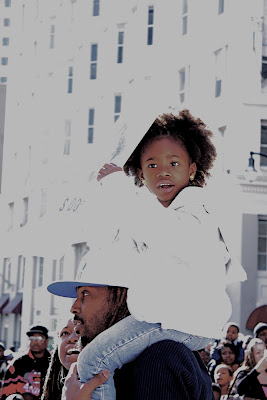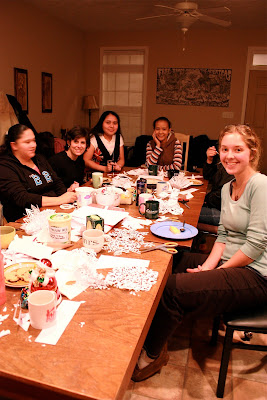Lately I've been thinking about the importance of early childhood education. Early childhood was actually my education emphasis in college, but really the only reason I chose that was because I thought I wanted to teach kindergarten and I needed that certification. Even though I know that ages 0-3 are extremely critical in a child's development I never gave it much thought. I actually assumed that in reality preschool or kindergarten on were really the most important, after all school is where they are really learning everything, isn't it? In some ways that statement is true. Preschool or kindergarten is where a child typically has their first exposure to traditional school. But the language exposure a child has had before ever stepping foot into a classroom will predict how well they will do in school.
I have been amazed at the lack of vocabulary many of the students I work have.
- Children of welfare mothers heard an average 620 words per hour from their mothers
- Children of working class mothers heard an average 1250 words per hour from their mothers
- Children of professional mothers heard an average of 2150 words per hour from their mothers
Low income children enter school at a disadvantage. This will affect not only their ability to read, but their ability to comprehend what they are required to read. Early childhood education is so important for all children, but especially low income children. Unfortunately, besides Head Start, there aren't many preschools that are free. And preschool can be downright expensive. And in reality the kids who attend Head Start will still likely start kindergarten behind their middle and upper class peers. What do we do about this? I wish I knew. I think what we have been doing, keeping low income families
housed together in the ghetto or projects, isn't working. We must live together in community. That's really the only way we can become a support system for those who don't have access to one.
In his speech "Where Do We Go From Here," Martin Luther King Jr. said "... the Movement must address itself to the question of restructuring the whole of American society. There are forty million poor people here..." Why" "...we've got to begin to ask questions about the whole society."
Individually we can't change our society. Individually we can change how we treat others. But just think what kind of difference the Church could make if we took on the needs of the poor here in America, in our own towns. Maybe our church budgets should include a specific plan for a specific part of town. The church could start an after school center or a food pantry, but not at the church, in the targeted neighborhood. Over Christmas break we had a chance to visit The Common Ground Community in Shreveport which does just that. I'd link it but their blog is private. It was so neat being there. A group of forty somethings took on very poor section of Shreveport and have created a bright spot in the neighborhood. They bought a house and have turned into a place for community meals, worship, tutoring, and more. We may not be capable of changing the world, but if we are a willing vessel, we
could change someone's world.
































 Seriously, how cool are these.
Seriously, how cool are these. 












